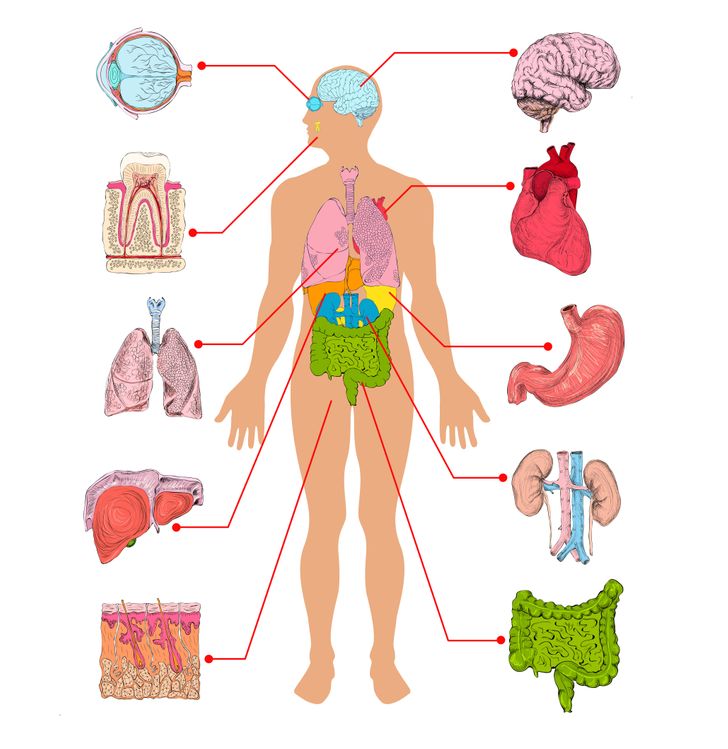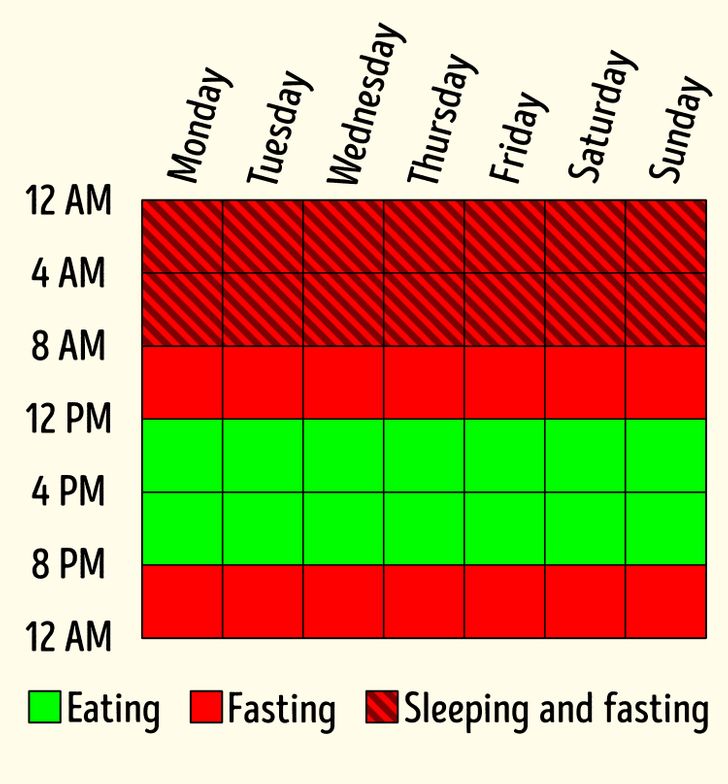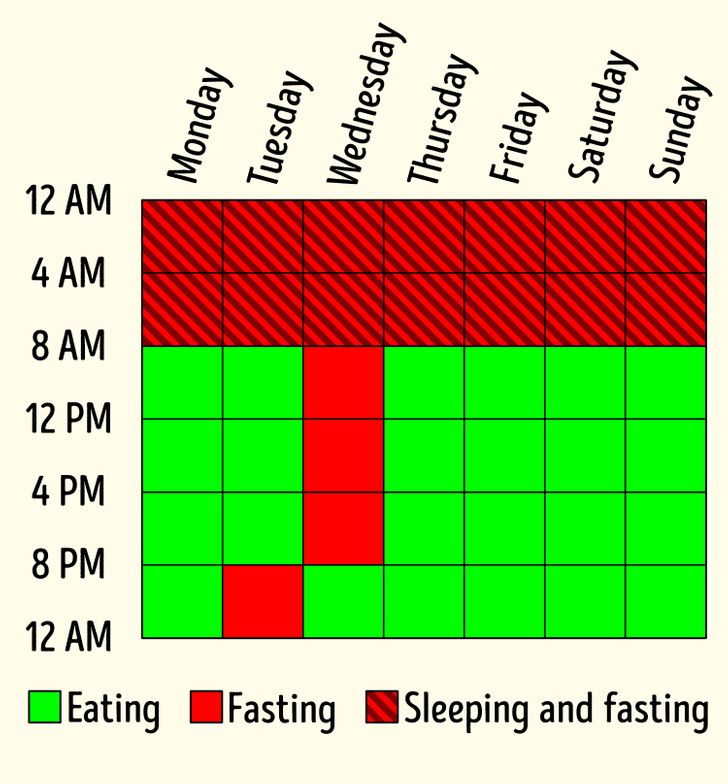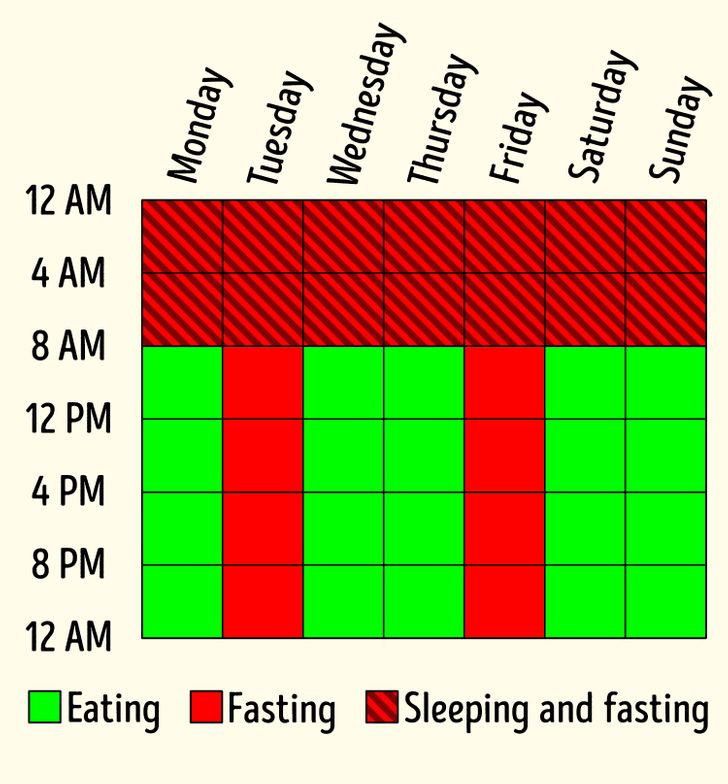Intermittent fasting is a very popular fitness trend today. Studies show that it not only helps you lose weight and get fit, but it can also have a positive impact on your life and even lengthen it.
We decided to do some research on this topic and find out what intermittent fasting is and how it works. We were really impressed with what we found and look forward to sharing the information with you.
What Is Intermittent Fasting?

Intermittent fasting is a dietary pattern in which the period of eating and the period of fasting alternate. It is not a diet, as it does not change what you eat, it changes when you eat.
Unlike diets, fasting is very natural for all living things, even humans. People had fasted for thousands of years, as food was not always available in the past and it was not a guaranteed resource. Therefore, our body is, in fact, very well adapted to fasting.
And even today, many of the major religions practice fasting in different ways, and many people follow them and feel good.
Based on all this information, we concluded that fasting is less stressful on our body than many diets.
How Does It Work?

Simply put, when you eat, your body spends a few hours processing the food you have recently eaten, extracting all the necessary energy from that food.
When you fast for a certain period of time, your body lacks that source of energy and has nothing to do but use the fat that you have stored.
Our body’s reaction to food triggers the production of insulin. And the higher our insulin sensitivity, the more efficiently we will use the energy in our food.
After a period of fasting, we become more sensitive to insulin. All of these changes lead to weight loss and help build muscle.
The Benefits Of Intermittent Fasting

Different studies have shown that intermittent fasting not only helps you stay in good shape, it can also improve your health and prevent many diseases.
- It reduces the risk of cancer and facilitates its treatment, reducing the side effects of chemotherapy.
- Normalizes blood pressure and protects against heart disease.
- Lowers blood sugar and reduces the risk of type 2 diabetes
- Reduces inflammation in the body.
- Increases the growth of new nerve cells and improves brain function.
- Help prevent Alzheimer’s disease or reduce its severity.
- Helps you live longer
3 Most Popular Ways To Do Intermittent Fasting
The 16/8 method:

Your “eating window” lasts for 8 hours during the day and the other 16 hours are used as fasting time. During fasting, you can only drink water, tea, coffee, or other calorie-free beverages. In general, women are advised to fast for a slightly shorter period of 14-15 hours.
On an empty stomach, you can skip breakfast and eat your first meal at noon, followed by your last meal at 8 pm. Or, if you eat your first meal at 9 am. You must stop eating at 5 pm. Choose the schedule that best suits you and your daily schedule.
Most people find this form of intermittent fasting the easiest, which is why eating this pattern is the most popular.
24 hours of fasting:

Once a week you stop eating for 24 hours, from dinner one day to dinner the next day. Or you can choose to fast from breakfast to breakfast or from lunch to lunch. During the rest of the week, eat normally.
The 5/2 method:

Here, you eat normally for 5 days a week and two days a week you only consume 20-25% of your normal daily calorie intake.
Have you ever experienced intermittent fasting or are you thinking of trying it after reading this article? Let us know in the comments.


